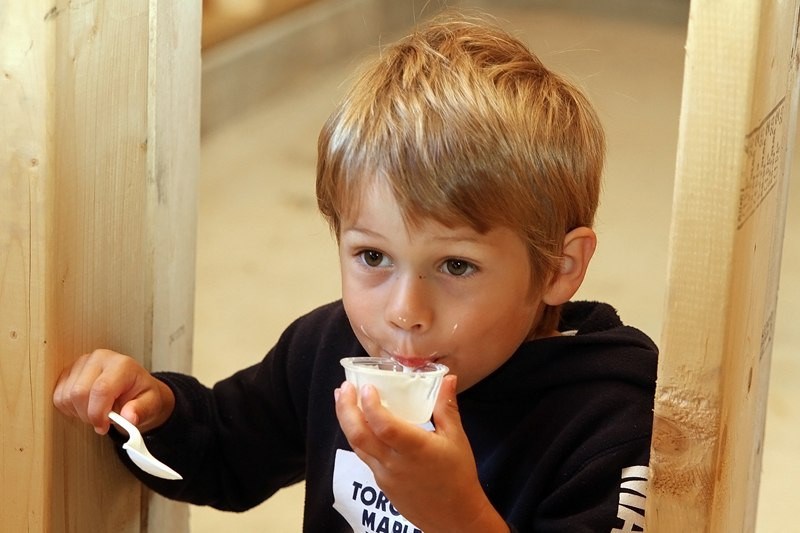Wilma Mol thought she might like to make ice cream and sell it for a living.
But after a few failed attempts, her family convinced her to look elsewhere.
She tried a yogurt recipe.
Her husband Jim took one taste and immediately uttered, “Now you’ve got something.”
It was the beginning of five-year process at Slate River Dairy, which next year expects to open a 4,800 square-foot local non-homogenized milk, cream and yogurt bottling facility.
With a handy drive-through window planned as well as an on-site retail store, not to mention the weekly Thunder Bay Farmer’s market, she plans to deliver locally made dairy products as soon as 2015.
Getting here has been an ordeal, she said on Thursday.
“I wouldn’t even try to put a number of hours on this. You ask a lot of questions, you go visit a lot of dairies, which we’ve done and then you research a lot on line,” she said. “A lot of time has gone into this before we got this building up and running.”
She and her husband have managed to get this far surviving on prayer, hopes, dreams and encouragement from friends, family, and even the provincial government, which has chipped in $500,000 through the Northern Heritage Fund Corporation – half of which is a loan that must be paid back.
The dairy farmers used their children as yogurt-tasting guinea pigs over the past several years, as Wilma Mol attempted to perfect her recipe.
On Wednesday she handed out samples of her plain, blueberry and maple flavours. The base harkens back to Yogurt Days, so-named by her children, who knew to leave Mom alone when she was tweaking her recipe.
“I would be so frustrated,” she said.
“There were good days when the yogurt turned out OK. There were not so good days when the yogurt turned out bad. But we still made the kids eat that yogurt.
“There were many times of frustration for us and we almost wanted to throw in the towel.”
As much as the venture is a labour of love, it’s also about wanting to add to the mix of available locally produced food.
Wilma Mol says the final straw was seeing corn starch added to store-bought yogurt, a no-no, especially in the Dutch community where it’s an after-meal staple in many households.
Judy Sander, of the Northwest Innovation Centre, says there’s no doubt in her mind the Mols will succeed.
It comes down to how badly they want it, as is the case in any project that crosses Sander’s desk.
“(Wilma’s) a dog with a bone and this will be a success because of the perseverance and determination,” Sander said.
The timing is right too, with food security top of many minds.
“The trend is there and they are right on track with the market,” Sander said.
Minister of Natural Resources Bill Mauro agreed, explaining why the province jumped on board.
“I just think people want to know where there food is coming from,” he said, adding the fact there’s nothing like this in the Thunder Bay area also helped.
The Mols will bottle their milk the old-fashioned way, which could limit its marketability.
The bottles will come with a deposit and must be returned to the dairy.
If successful, Wilma Mol said she hopes to expand, next looking at churning locally produced butter.
